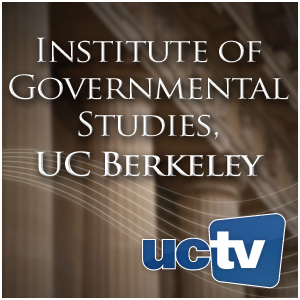29m ·
Published
22 Jun 21:00
Soil - that mixture of degraded bedrock, decomposing organic matter, and microorganisms that nourish the root systems of plants and trees - holds 4x more carbon than vegetation. By changing how we manage our soils, we can increase the rate of CO2 trapping from the atmosphere into the soil carbon bank, while at the same time enhancing the agricultural productivity of a region.
Dr. Asmeret Asefaw Berhe, Professor of Soil Biogeochemistry at University of California, Merced, is a global leader in the carbon storage potential of soils. She sat down with Climate Now to explain why soils are so good at trapping carbon, how much they could hold, and what we can do to increase soil carbon storage. Series: "Climate Now Conversation" [Science] [Show ID: 38057]
43m ·
Published
28 Dec 21:00
Through the lens of the study and impact of aerosols, Vicki Grassian argues that collaboration, innovation, and implementation are the only way forward for successful science and a healthy society. She addresses the role of research institutions, traditional science boundaries, and the need for interdisciplinary work. Series: "Exploring Ethics" [Humanities] [Science] [Show ID: 37402]
1h 29m ·
Published
05 Apr 21:00
This presentation examines how the fossil fuel and petrochemical industries have created climate emergencies that have threatened global food production, human health, and soil health. Experts explore the ubiquitous presence of chemicals in our food supply and the significant, cumulative impacts of extreme heat, pesticides, herbicides, and GMOs on agricultural communities, as well as the promise of regenerative agriculture. Series: "Mini Medical School for the Public" [Health and Medicine] [Science] [Agriculture] [Show ID: 36858]
59m ·
Published
10 Mar 21:00
California's precipitation regime is the most volatile in the country. These large natural swings between drought and extremely rainy years make water resource management in California notoriously difficult. Global climate change is expected to exacerbate the volatility by decreasing the frequency of regional precipitation while increasing its intensity. Join meteorologist Alexander Gershunov to learn about the mechanisms behind these projected changes, their anticipated impacts on California, as well as how art can help convey the science. Series: "Jeffrey B. Graham Perspectives on Ocean Science Lecture Series" [Science] [Show ID: 36727]
1h 21m ·
Published
02 Dec 21:00
Are humans rational beings guided by facts and information or do our moral views, desires, affiliations and motivations influence our perception of facts? Increasingly distrust in the science of climate change is rooted in different exposure to media/information and tied to political ideology. Dr. Gina Solomon says that the debate on the science is actually a debate on the solution and discusses ways to communicate about climate science. Series: "Mini Medical School for the Public" [Health and Medicine] [Science] [Show ID: 36490]
1h 16m ·
Published
20 Nov 21:00
The purpose of public health is to fulfill society’s interest in assuring the conditions in which people can be healthy, says Dr. Richard Jackson, Professor emeritus at the Fielding School of Public Health at UCLA. For nine years he was Director of the CDC’s National Center for Environmental Health. In this talk. he explores environmental impacts on health ranging from climate change, toxicology, terrorism, and sustainability. Series: "Mini Medical School for the Public" [Public Affairs] [Health and Medicine] [Show ID: 36489]
46m ·
Published
28 Jul 21:00
Join Scripps climate scientist Yassir Eddebbar for an exploration of the oceans interior and a fascinating phenomenon oxygen minimum zones (OMZs). With a focus on Yassirs work in the tropical Pacific, learn what causes OMZs, how they are likely to change in response to climate change, and their potential to impact marine ecosystems and fisheries as climate warms. Series: "Jeffrey B. Graham Perspectives on Ocean Science Lecture Series" [Science] [Show ID: 35704]
55m ·
Published
18 Jun 21:00
Aerosols can move around the globe - affecting our climate and our weather but how do they affect human health? Kim Prather, Ph.D. explores how her work transfers the complexity of the ocean's atmosphere into the lab to better understand the COVID-19 pandemic. Series: "Climate Crisis" [Health and Medicine] [Science] [Show ID: 36060]
38m ·
Published
28 May 21:00
Human health is affected by environmental change. Those impacts are distributed unequally within and between populations and the disparity between those most responsible and those most affected by change. Dr. Thomas Newman describes how you can reduce your own environmental footprint by conserving energy, reducing travel, eating less meat, and offsetting carbon. But individual change alone will not be enough as greater change is necessary. Newman is Professor Emeritus of Epidemiology & Biostatistics and Pediatrics at UCSF and the Chair of San Francisco Bay Area Physicians for Social Responsibility Environmental Health Committee.
Series: "Mini Medical School for the Public" [Health and Medicine] [Science] [Show ID: 35919]
1h 1m ·
Published
06 May 21:00
This webinar focuses on what transportation solutions are available to combat these trying times. Panelists discuss what strategies states, cities, transit agencies, TNCs and others are taking to address COVID-19. The session begins by introducing some insights into suspected changes in travel behavior, and continues with a discussion about how we can plan for a future that will enable climate resilient and equitable communities. [Public Affairs] [Show ID: 35944]




























































































